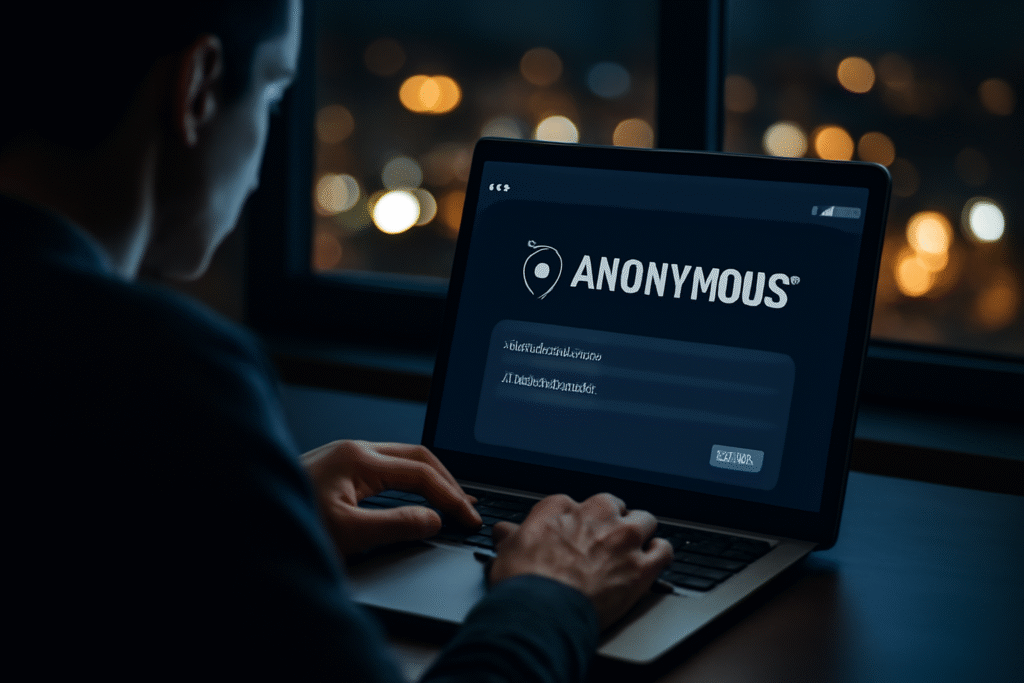At its core, anonposted refers to any piece of content shared online without attributing it to a known individual. This could be text, images, videos, or even documents uploaded to a platform that either doesn’t collect user details or actively hides them from the public. The aim is to separate the message from the messenger, allowing ideas to stand on their own merit without being tied to personal identities.
Why People Choose to Post Anonymously
People choose anonposted methods for a variety of reasons. For some, it’s about protecting themselves from backlash. For others, it’s about feeling free to speak openly. Common motivations include:
-
Whistleblowing – Exposing unethical or illegal practices without risking personal safety or career.
-
Sharing Personal Stories – Discussing sensitive experiences without public judgment.
-
Political Activism – Advocating for causes in regions where dissent can be dangerous.
-
Creative Freedom – Experimenting with ideas without attaching them to a public profile.
-
Avoiding Harassment – Shielding oneself from targeted abuse or trolling.
In all cases, anonymity can provide a sense of safety and empowerment — but it’s not without its challenges.
The Benefits of Anonposted Content
There are clear advantages to anonposted communication, especially when dealing with sensitive or controversial subjects. Some of the key benefits include:
-
Freedom of Expression – Without fear of personal consequences, people are more willing to share honest opinions.
-
Focus on Content Quality – Discussions revolve around the information rather than the person behind it.
-
Protection from Retaliation – Essential for whistleblowers and activists.
-
Encouragement of Participation – Some individuals engage more when they know their identity is hidden.
These benefits have made anonymous posting a critical tool in journalism, activism, and online community building.
The Risks of Anonposted Activity
While anonymity offers protection, it can also carry risks:
-
False Sense of Security – Many platforms claim to protect anonymity but still log IP addresses or metadata.
-
Legal Consequences – Posting certain types of content anonymously does not make it exempt from laws.
-
Abuse of Anonymity – Some use anonposted systems for harassment, defamation, or spreading false information.
-
Data Leaks – Even secure platforms can be breached, revealing user identities.
Understanding these risks is key to making informed decisions when posting anonymously.
Popular Platforms for Anonposted Content
Several platforms and tools are designed to support anonymous posting, each with different features:
-
Reddit with Throwaway Accounts – Temporary accounts with no identifying information.
-
4chan & Imageboards – Completely anonymous posting without user accounts.
-
Secure Messaging Apps – Signal, Telegram (secret chats), and other encrypted platforms.
-
Anonymous Blogging Sites – Write.as, Notepin, and similar tools.
-
Dark Web Forums – Accessible via Tor, offering high anonymity for sensitive discussions.
Choosing the right platform depends on your goals, audience, and security needs.
How to Stay Truly Anonymous When Posting
True anonymity requires more than just not using your real name. To maintain privacy:
-
Use a VPN – Hides your IP address from websites and ISPs.
-
Access Through Tor – Routes your connection through multiple servers for higher anonymity.
-
Avoid Linking Accounts – Don’t reuse usernames, emails, or profile photos.
-
Strip Metadata from Files – Photos and documents often contain hidden location data.
-
Use Encrypted Communication – Especially for sharing sensitive files or messages.
By combining these measures, you significantly reduce the chances of being identified.
Legal Considerations for Anonposted Material
Just because a post is anonymous doesn’t mean it’s above the law. Depending on your location, anonymous posts can still be traced through subpoenas, ISP records, or platform cooperation with law enforcement. Defamation, harassment, or sharing illegal content can still result in legal action. If you’re dealing with sensitive or high-risk topics, it’s wise to consult a legal expert.
Anonposted in Whistleblowing and Investigative Journalism
Anonymous posting plays a critical role in investigative journalism. Many whistleblowers rely on secure, anonposted channels to deliver evidence to reporters without endangering themselves. Platforms like SecureDrop and GlobaLeaks are designed specifically for this purpose, offering end-to-end encryption and metadata stripping to keep sources safe.
The Psychological Impact of Anonymity
Anonymity changes the way people communicate. While it can liberate individuals to speak openly, it can also lead to more aggressive or unfiltered behavior. Psychologists call this the “online disinhibition effect,” where people say things anonymously that they might never express publicly.
Balancing Privacy and Accountability
One of the biggest debates around anonposted content is how to balance privacy with accountability. While anonymity protects individuals, it can also enable harmful behavior. Some platforms now use systems that allow for anonymous posting while still holding users accountable for policy violations.
Businesses and Organizations Using Anonposted Feedback
Companies and institutions are increasingly using anonymous surveys and feedback tools to gather honest employee and customer opinions. This allows for more truthful responses, especially about sensitive workplace issues like harassment or discrimination.
The Future of Anonposted Communication
As privacy concerns grow, the demand for anonposted options is expected to rise. Future developments may include decentralized posting networks, blockchain-based anonymity verification, and AI-powered content moderation that doesn’t require identity tracking.
How to Choose the Right Tools for Anonposted Sharing
When selecting tools for anonymous posting, consider:
-
Security Features – Encryption, no-log policies, and secure file handling.
-
Ease of Use – The tool should be simple enough for non-technical users.
-
Reputation – Established platforms with proven track records of protecting anonymity.
-
Access Requirements – Some tools may require special browsers like Tor.
Best Practices for Safe Anonposted Participation
-
Never reveal identifying details in text, images, or metadata.
-
Use separate devices or virtual machines for anonymous activity.
-
Keep security software updated to prevent tracking and malware.
-
Be mindful of your tone — anonymity doesn’t remove the impact of your words.
Case Studies of Anonposted Success Stories
From exposing corporate corruption to sparking political reform, anonposted content has played a pivotal role in shaping events. These real-world examples demonstrate its power when used responsibly.
The Role of Encryption in Anonposted Security
Encryption is the backbone of anonymous communication. Without it, even seemingly private messages can be intercepted. Understanding encryption basics helps users make informed decisions about which platforms to trust.
Anonposted and the Fight for Digital Rights
Privacy advocates argue that anonymous posting is a fundamental part of free speech. Organizations like the Electronic Frontier Foundation (EFF) defend these rights and provide resources for staying safe online.
Also read : MyLawyer360.com Injuries: Complete Legal Guide for Victims
FAQs
What does anonposted mean?
It refers to online content posted without revealing the author’s identity.
Can anonposted content be traced?
Yes, in some cases, depending on the tools and platforms used.
Is anonposted posting legal?
In most countries, yes, but it can still be subject to laws regarding content.
Which platforms allow anonposted sharing?
Options include Reddit throwaway accounts, 4chan, Write.as, and Tor-based forums.
How can I make sure my anonposted content stays private?
Use VPNs, Tor, encryption, and avoid sharing identifying details.
Conclusion
Anonposted communication is more than just a way to hide your name — it’s a powerful tool for free expression, personal safety, and open dialogue. However, it requires careful consideration, the right tools, and responsible use. As privacy becomes a growing concern in the digital era, the importance of anonymous posting will only continue to increase.



